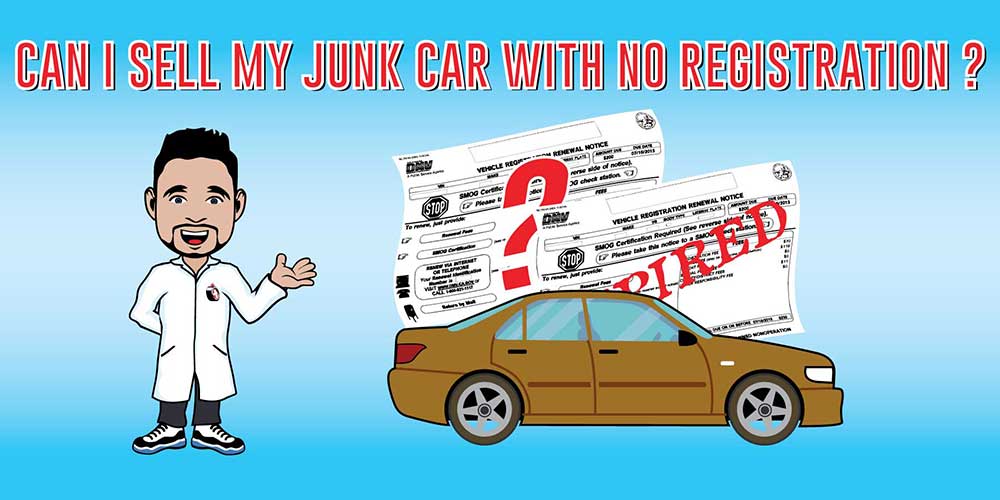Yes, you can junk your car with an expired registration in any state in the USA.
Here’s how to do it:
Why Junk an Unregistered Car?
Keeping an unregistered car can lead to fines. Many areas require all vehicles on your property to be registered to prevent them from becoming eyesores, leaking pollutants, and attracting animals. Check your local laws to avoid penalties.
Steps to Junk Your Car with an Expired Registration
1. Gather Necessary Paperwork
- Vehicle Title: The most important document. It proves ownership.
- Old Registration: Even if expired, it can still be useful.
- Driver’s License: Valid identification is often required.
- Insurance Card: Sometimes accepted in lieu of registration.
2. Contact the Salvage Yard
- Inquire About Requirements: Ask what documents are needed to junk an unregistered car.
- Get a Quote: Provide details about your car to get an offer.
3. Visit the DMV if Needed
- Duplicate Registration: If you don’t have the old registration, get a duplicate from the DMV.
- Replacement Title: If the title is missing, you’ll need to obtain a replacement.
Special State Regulations
Some states have specific rules for junking cars without current registration. If the car is of a certain age or value, a Licensed Vehicle Remover may be permitted to recycle it. Check with your salvage yard for state-specific rules.
Handling Abandoned Vehicles
If an unregistered vehicle has been abandoned on your property, contact local authorities. They will guide you through the legal process to remove the vehicle.
Simplifying the Process
Having the right paperwork makes junking your car straightforward. Junk Car Medics can help you navigate the requirements and offer a fair price for your vehicle.
Are Unregistered Junk Cars Worth Less?
When junking a car, its registration status does not affect its value. Junkyards and junk car buyers will offer the same valuation regardless of whether the car is registered.
Definition of an Unregistered Car
An unregistered car lacks state-issued license plates. This includes new cars not yet registered and older cars that failed inspections.
Common Reasons for Unregistered Cars
- Failed Inspections: Cars that can’t pass safety or emissions tests often become unregistered.
- Exemptions: Some vintage, antique, or salvage-titled cars aren’t required to be registered.
- Relocation: Moving to a new state can lead to expired registrations if not promptly transferred.
- Cost Oversights: Owners may not be aware of registration fees and associated costs.
Junkyards Buy Unregistered Cars
Junkyards do buy cars without current registration. You’ll need the vehicle title and your ID. Junkyards are familiar with these situations and can guide necessary documentation.
Final Tips
- Discuss Documentation: Let the salvage yard know if you’re missing any documents to avoid delays.
- Prepare Ahead: Ensure you have everything ready before the tow truck arrives.
By following these steps and preparing the necessary paperwork, you can efficiently junk your unregistered car. Junk Car Medics is here to assist you and provide a fair price for your vehicle.

